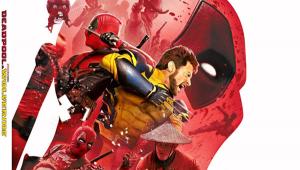Thomson Signs Net TV Development Deal
Each member brings its own specialty to the group. Alcatel builds some of the world's most advanced telecommunications equipment. A major player in consumer electronics, NEC is also the second-largest semiconductor manufacturer in the world. DirecTV is a well-established satellite TV provider, and Microsoft is the #1 software company.
"We want to get into the enhanced TV business, the hardware and services business," explains Jim Meyer, executive VP of Thomson Consumer Electronics, a division of Thomson Multimedia. "We're pleased . . . the French government has opened the structure of Thomson Multimedia to outside partners."
The deal was made possible through a special dispensation by the French government. Previous proposals to open Thomson to outside interests---such as an attempt to sell the money-losing giant to Daewoo Electronics in 1996---provoked widespread protests in France.
Thomson owns RCA, an icon of the golden age of American electronics, which manufactures high-end video products under the ProScan label. Thomson acquired RCA after it was spun off by General Electric, which acquired it several years ago during a flurry of mega-mergers.
Thomson is calling its soon-to-be-developing net-TV technology "eTV," for "enhanced television"---an umbrella title for a variety of new products and services for the next century. These products and services include electronic programming guides, plasma screens, satellite receivers, cable modems, home-networking devices, Internet telephones, and DVD-ROM drives, all with interactive features based on Microsoft's Windows CE software. "Our combined efforts will accelerate the development of enhanced TV," says Thomson CEO Thierry Breton.
Microsoft has a long-standing policy of inserting an iron into every possible fire. According to Craig Mundie, a Microsoft senior VP for consumer electronics platforms, "Microsoft believes that consumers can only benefit from the fruits of this relationship. Thomson's leadership in consumer electronics, combined with Microsoft's desire and ability to provide technologies to enable digital television, is sure to bring products and services to the market that consumers will embrace."
Interactive TV, which will give consumers instant access to programming and products, is the Holy Grail of convergence. For example, "product placement"---the practice of inserting brand-name products instead of generic ones into scenes in movies and TV programs---will become more than a form of subtle advertising. As some visionaries see it, enhanced TV will let consumers watching a tennis match "click on" a player's shoe, thereby taking the viewer to the shoe manufacturer's Web site, which will appear in an onscreen window while the match continues in the background. The consumer will then be directed to the closest retailer or sold the product directly. Microsoft, Thomson, DirecTV, et al., will extract fees for millions of such transactions.
Early experiments in interactive TV by telephone companies and cable providers were primitive, poorly conceived, large-scale financial disasters. After extremely slow sales, manufacturers such as Sharp, Mitsubishi, and Sanyo have stopped making products for the as-yet-nonexistent interactive-TV market. Thomson's eTV partner NEC has also withdrawn its interactive-TV products. Even so, the belief in the inevitability of net TV is strong enough to forge alliances like the one Thomson announced last Thursday.
- Log in or register to post comments






















































